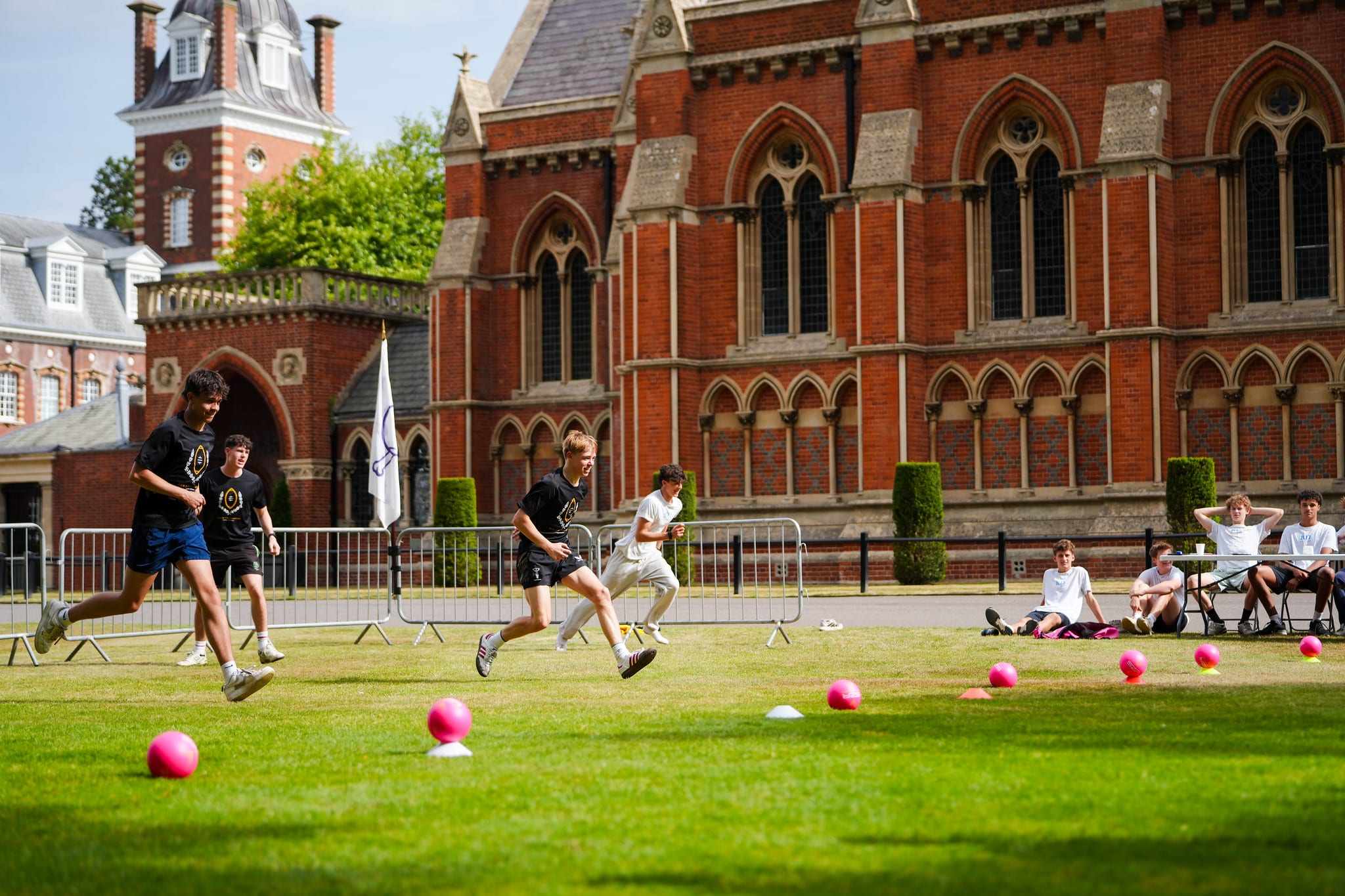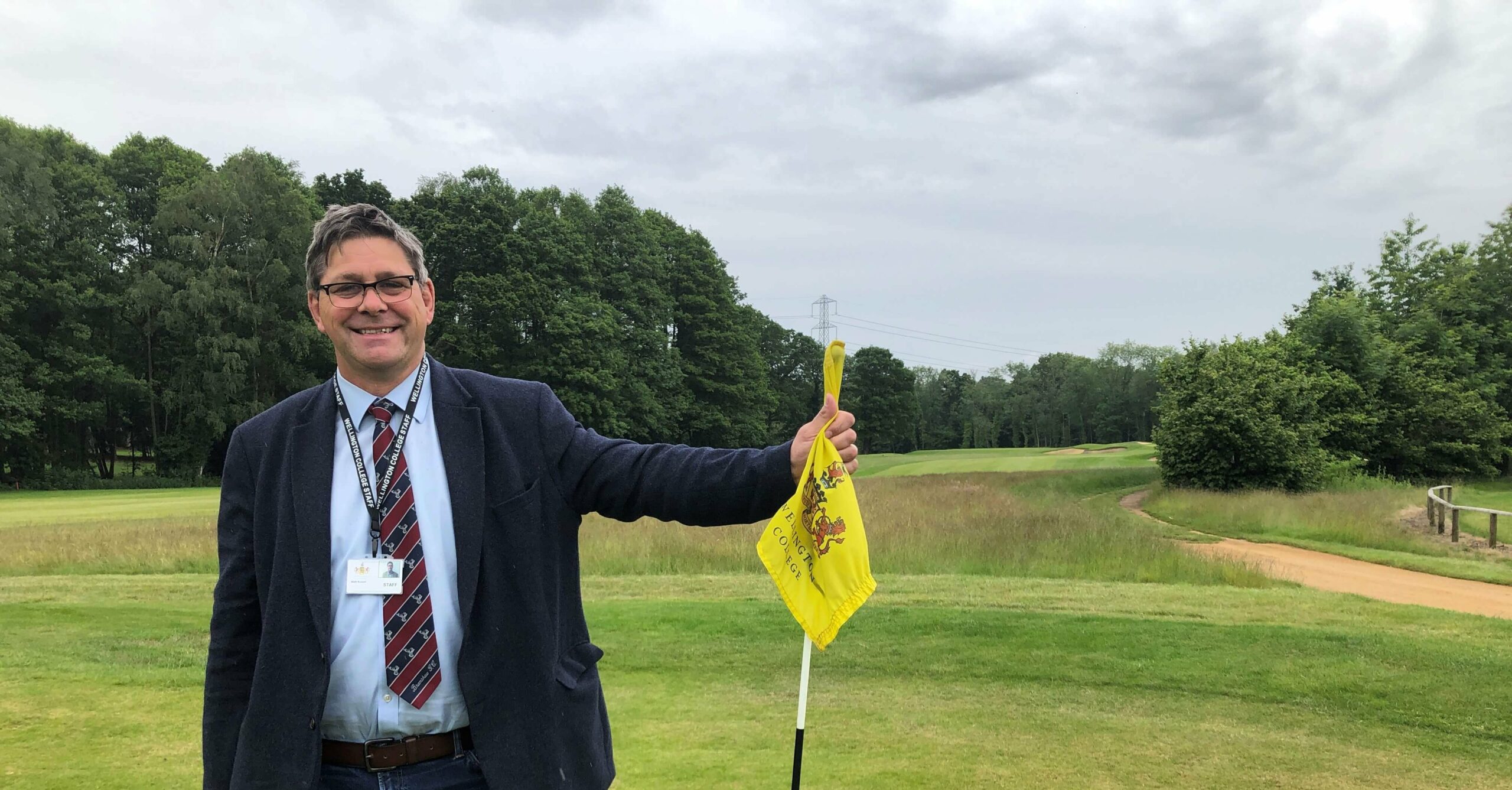
An Interview with Mark Russell, Mental Skills Coach at Wellington
Professional mental skills coach, Mark Russell, tells us how he has been helping Wellington’s top athletes to fulfil their potential and to be “the best version of themselves”, both on and off the sports field.
How did you become a mental skills coach?
I was lucky enough to be involved in sport at the professional elite level. I played rugby union for Harlequins FC, Blackheath FC and England A in 1990s. I travelled the world, playing in some fantastic stadia and against some incredible teams. I had a great time, learned loads, had some fabulous experiences and made lifelong friends – it’s fantastic how sport creates these kind of opportunities for you.
After I retired from rugby, I got a job in the City. I quickly realised that it doesn’t matter whether it’s sport, business or life, it’s a game played largely in the mind! What you think determines how you feel. Feelings drive your emotions. Emotions are the bedrock of how you behave, your habits, the decisions/judgments you make and the attitude you have. It all starts with a thought! So, what you are thinking is really important.
I quickly realised that helping people figure out how to be the best version of themselves is something I would love to do as a career. I went to business school and used my MBA studies to focus on understanding emotional intelligence (how emotions work and how to use them effectively). If you know how to drive your emotions so that they work for you, you can build rapport and motivate others. You can also be more influential and more persuasive – someone who leaves a positive, lasting impression.
I came to the conclusion that emotional intelligence is much more important than your IQ when it comes to dealing with challenging situations, getting things done, achieving goals and getting the best out of who you already are!
And it’s the same in sport. Talent is as common as table salt in sport, especially at somewhere like Wellington – there are lots of talented athletes! For me, ATTITUDE and EFFORT is what makes the difference in how the athletes perform and the accomplishments they achieve. The bit between the ears, the top two inches is the difference that makes the difference when talent abounds. I’ve always believed that the game is won in the mind, and then you go out and play it!
As a qualified mental skills coaching professional, I help athletes understand how the mental side of their game can impact and drive performance; if they focus on what they need to do in terms of developing that toughness, resilience and mental agility, they’ll stand a really good chance of being the best version of themselves in sport and fulfilling their potential.
What impression have you formed of the athletes at Wellington?
Immediately I noticed there was a need to improve what was being done to help athletes to develop the mental side of their game. As I talked to athletes about building confidence, coping with expectations, dealing with distractions, trusting your skills, they would say to me things like,
“I wish I had known this years ago – it would have really helped me.”
“People say I haven’t got confidence, but I don’t know what that is!”
“How do I go about understanding what my sources of confidence are, or indeed identifying the ones I can control?”
“How do I deal with this negative self-talk that can happen to me and how do I rebut it?”
I also noticed that when the athletes learned how to develop the mental skills there was a dramatic improvement in their performance and the fun and freedom they started to experience in playing sport.
In your experience, what are the three most effective ways of building confidence?
The first way is to identify your sources of confidence. It might be things like: how I prepare; how I practise; my talent; the coaching I receive; how fit I am; how well I’ve slept the night before; the weather and the state of the pitch; the opponents and the venue; who is officiating?; who is playing in my team?; my relationships with teammates, and so on…
There are all sorts of things that might feed into your confidence.
The next step is to ask yourself, “which of those can I control?” Can you control eat, sleep, move? Yes, I can! Can you control your practice? Yes, I’ve got a big say in that! Can you control how you prepare? Yes, I can! Can you control your opponents and where you’re playing? No, so drop that one. Can you control the weather? Can you control who’s officiating? No, so why waste your effort and focus in investing in those areas? FOCUS on what can you control and let go of what you cannot.
The second way to build confidence is to put together a ‘Confidence CV’. Start by writing down all of your accomplishments and achievements – detail the awards, trophies and medals you have received. Also list your strengths are, and what people say about you when you’re playing well. Get some photographs and newspaper clippings of games you’ve played where you have been the best version of yourself. Now create a poster sized Confidence CV – make it colourful, bring it to life with pictures. Be CREATIVE! The brighter the better! Now refer to your Confidence CV a regular basis, particularly when you find things are becoming tough, or before a match, or before training. If you’ve got a really good CV, every time you look at it, it will make the hairs on the back of your neck rise!
The third way to build confidence is to learn how to how to deal with ANTs. What’s an ANT, you ask? An ANT is an Automatic Negative Thought. What might be an example of that? “Oh, it’s raining, I never play well in the rain!” I’ve known athletes go from a rain drop on the windscreen of their car to being homeless 30 seconds later by allowing all sorts of automatic negative thoughts into their mind. So, how do you deal with ANTs? You introduce a CAT. A CAT is a Conscious Alternative Thought that negates an ANT. “Oh, it’s raining! Well, I might need to stand closer to the person passing me the ball”. Can you see how you can use a CAT as a way of driving your performance?
Can you give an example of the most significant change you’ve seen in an athlete?
I’ve got some great sports stories and life stories from my work. The best thing about what I do is that when the athletes develop mental skills they don’t just use it on the sports field, they take it everywhere, wherever they go – into their studies and relationships, and all sorts of areas… it’s one of those life skills.
Let me illustrate this with a short story – there was one athlete who was diminutive in stature and when they were standing in the holding area prior to the race, they felt intimidated by all of the tall, powerful looking athletes around them. But as soon as they realised what their sources of confidence were and focused solely on those they got a bit of a swagger on and that really helped them to perform and achieve. Off the sports field, this same athlete happened to be a school prefect too. Being confident and trusting in their skills really helped them build rapport and motivate others and be a prefect to the best of their ability. It was a win, win situation!
What place can you see for this kind of mental skills coaching in the classroom?
A lot of what I do in terms of mental skills development helps an athlete develop resilience and toughness and that is where I see it contributing. Of course it’s not the only intervention, but that’s where I see it contributing significantly in helping young people become more resilient, to be able to not just bounce back, but bounce forward, and take responsibility for what’s happening in their world. My view is that if you can learn how to build confidence when you’re playing hockey, football or any sport then you can also learn how to build confidence when you’re doing algebra or Latin. And I see it developing at Wellington by being available to the wider sports community and maybe in other disciplines, such as music, drama and other performing arts.
One of the exercises I do with young athletes is called the ‘responsibility pie’ – in involves plotting the factors that contribute to an athlete’s performance. And what most conclude it that the most significant factor in an athlete’s performance is themselves. It’s up to YOU. Your ATTITUDE and your EFFORT are key to what you will accomplish!
Twitter: @MP_Russell
Website: markrussell.co.uk









